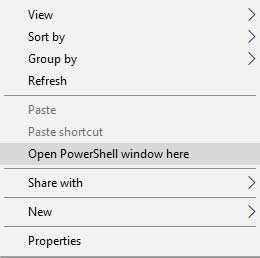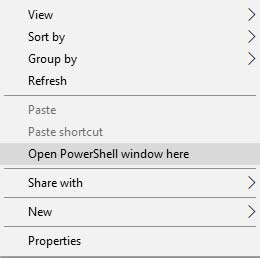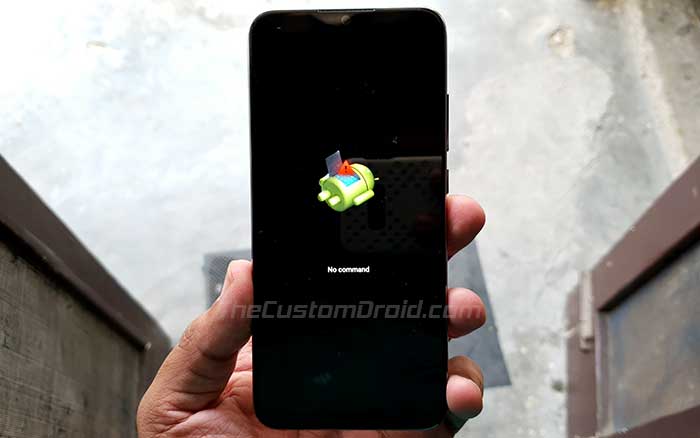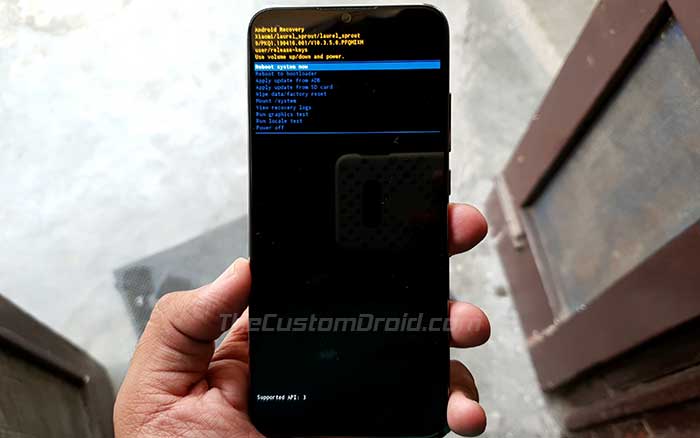If you own a Xiaomi Mi A3 and are into the Android customization/development scene, then you might often need to enter Fastboot Mode or Recovery Mode at some point. Even if you’re an average user, knowning about the procedure could come in handy if you want to restore the stock firmware or perform a factory reset on your phone. The instructions in this guide will show you how to easily boot your Xiaomi Mi A3 into Fastboot Mode and Recovery Mode using two different methods, either by using the physical buttons combination or using ADB commands.
Advertisement
If you’re new to this, you must first understand what these modes actually are and when you might need to boot into them. The following pointers will explain you the same.
- What is Fastboot Mode? – In general “fastboot” is a part of the Android SDK Platform-tools, which can be used to modify (write, erase, or format) your Mi A3’s partitions. When it comes to practicality, it allows you to flash the stock firmware, unlock the bootloader, custom recoveries like TWRP, or even custom binaries like Magisk-patched boot images to gain root. But into order to perform any of the said procedures, you will be required to enter Fastboot Mode on Xiaomi Mi A3 and then connect it to the PC.
- What is Recovery Mode? – Recovery in Android is a bootable partition on Android where the stock recovery console is pre-installed by the manufacturer (Reference: Android Central). Entering Recovery Mode on Xiaomi Mi A3 can help you perform a factory reset to fix software issues like bootloops, and even help you manually sideload OTA updates on your phone, and perform several other actions. In case you have a custom recovery installed (like TWRP), booting your Mi A3 into Recovery Mode could provide additional features like installing custom ROMs, kernels, mods, or root solutions like Magisk, etc.
Now that you know what both modes are and when you’d need to access them, let us move onto the instructions.
In order to use the second method, you must first install ADB on your PC and make sure that you have enabled USB debugging on your Mi A3. Also ensure that you have the proper USB drivers for your Xiaomi device installed on your PC.
Page Contents
How to Boot Xiaomi Mi A3 Fastboot Mode
Booting your Xiaomi Mi A3 into Fastboot Mode could be done using two different methods – (1) By using the physical buttons combination, or (2) By using ADB commands. Both of the methods have been listed below. If you’re new to this, do not worry, the instructions are very easy and wouldn’t do any damage to your phone at all in any circumstances.
- First, hold the Power button of your Xiaomi Mi A3 until the Reboot menu appears.
- Tap on “Power off” to shut down your phone.
- Wait for a few seconds to ensure that your Mi A3 is powered off completely.
- Now press and hold the Volume Down (-) button.
- Whole holding the Volume Down button, press the Power button to finally enter Fastboot Mode on your Xiaomi Mi A3.
Method 2: Using ADB
- Connect your Xiaomi Mi A3 to the PC using the USB cable.
- Go to the folder where ADB is installed (e.g. C:\platform-tools).
- Hold the “Shift” key on the keyboard and right-click on any empty space inside the folder.
- Select “Open PowerShell window here” from the contextual menu that appears.

- If you’re using macOS or Linux, open the Terminal and simply “cd” to the folder where ADB is installed.
- Now, enter and execute the following command in the command-line window to ensure that your Mi A3 is being correctly detected by ADB.
- Windows PowerShell:
.\adb devices
- Linux/macOS Terminal:
./adb devices
- Windows PowerShell:
- If you see a prompt on the phone’s screen to allow USB debugging, simply press “Allow”.
- Finally, enter the below command to boot your Xiaomi Mi A3 into Fastboot Mode:
Your phone should now be in Fastboot Mode with the Mi bunny and “FASTBOOT” text shown on the screen. You may now go ahead, connect your Mi A3 to the PC and perform desired procedures using fastboot.
How to Boot Xiaomi Mi A3 Recovery Mode
Just like in case of fastboot mode above, booting Xiaomi Mi A3 into Recovery Mode could be done via two methods – (1) Either by using the physical buttons combination, or (2) By using ADB commands. It doesn’t matter if you have the stock recovery installed on your A3 or TWRP, the method(s) to boot into Recovery Mode stay the same.
- Press and hold the Power button of your Xiaomi Mi A3 until the Reboot menu appears.
- Tap on “Power off” to shut down your phone.
- Wait for a few seconds to ensure that your Mi A3 is powered off completely.
- Now press and hold the Volume Up (+) button.
- Pres and hold the Power button while holding the Volume Up button for about 3-5 seconds.
- You shall now see a screen with a warning sign and “No Command” text.
- At this point, press and hold the Power button.
- Finally, tap the Volume Up (+) button once, while holding the Power button to enter Recovery Mode on your Xiaomi Mi A3.
Method 2: Using ADB
- Connect your Xiaomi Mi A3 to the PC using the USB cable.
- Go to the folder where ADB is installed (e.g. C:\platform-tools).
- Hold the “Shift” key on the keyboard and right-click on any empty space inside the folder.
- Select “Open PowerShell window here” from the contextual menu that appears.

- If you’re using macOS or Linux, open the Terminal and simply “cd” to the folder where ADB is installed.
- Now, enter and execute the following command in the command-line window to ensure that your Mi A3 is being correctly detected by ADB.
- Windows PowerShell:
.\adb devices
- Linux/macOS Terminal:
./adb devices
- Windows PowerShell:
- If you see a prompt on the phone’s screen to allow USB debugging, simply press “Allow”.
- Finally, enter the below command to boot your Xiaomi Mi A3 into Recovery Mode:
Your phone should now be in Recovery Mode (Stock or TWRP, whichever you may have installed). You can now go ahead and use it to perform various actions, like performing a factory reset or manually installing an OTA update in case of the stock recovery. Or, use TWRP to install custom ROMs, kernels, mods, backup/restore your firmware, and even Magisk installer zip file to root your phone.
There you go! You have just learned how to boot Xiaomi Mi A3 into Fastboot Mode and Recovery Mode using two different methods. It was easy, wasn’t it? If you still face any issues regarding the procedure, or have any other questions about the Mi A3, simply ask us through the comments section.







